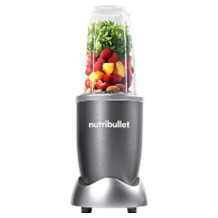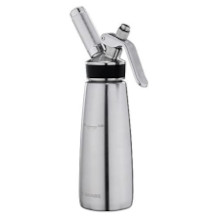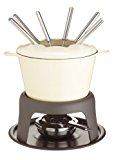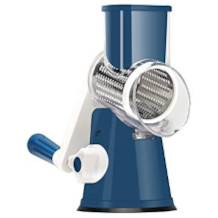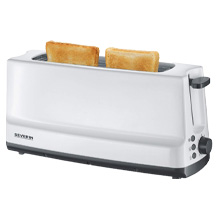Egg cooker purchasing advice: how to choose the right product
- The most important facts in a nutshell
- Egg cookers help to prepare eggs to the desired consistency.
- Using egg cookers saves up to 80 percent energy compared to using a saucepan on the electric cooker.
- Less water is needed to cook eggs in an egg cooker than in a saucepan.
- With some devices, the degree of hardness can be regulated electronically, with others by adjusting the amount of water.
- Some models are even suitable for steaming foods such as rice or broccoli.
Why an egg boiler is a relief
Whether soft, medium or hard – it’s not so easy to find the perfect moment when cooking eggs. This is especially true if you want to cook several eggs for breakfast and your family members or partner prefer breakfast eggs of a different hardness than you do. Eggs don’t always turn out perfectly the way you want them to: sometimes the yolk is too hard, sometimes the egg white is too flabby.
Breakfast enthusiasts adjust the moment when the water boils in the classic preparation in the saucepan and only then add the egg to the water. This supposedly makes it possible to determine the exact cooking time without pre-cooking.
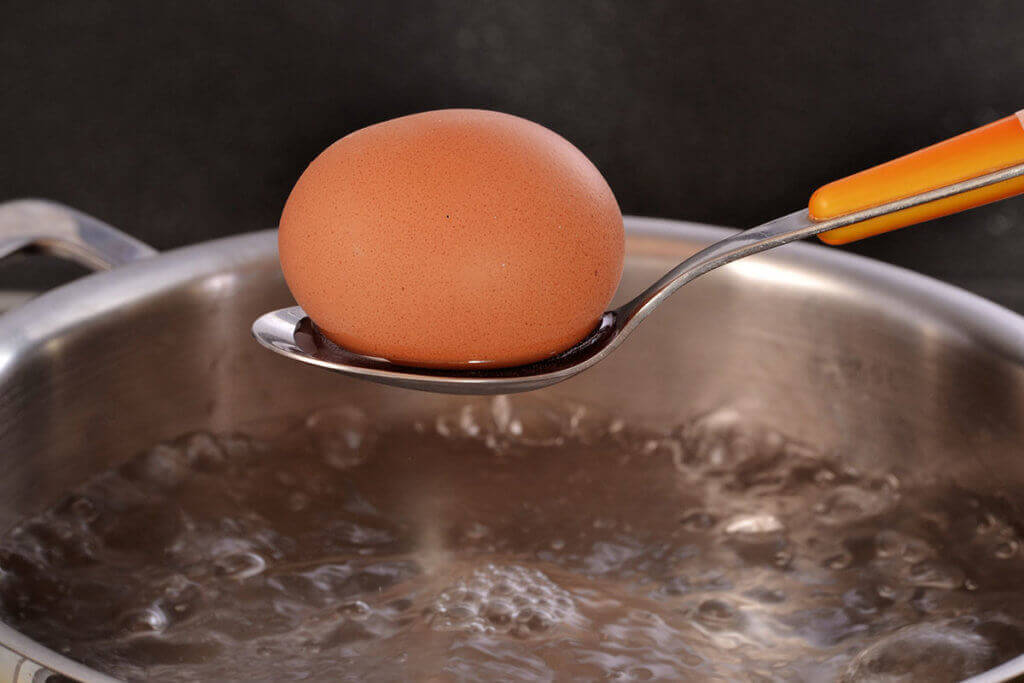
In addition, it is necessary to wait until the end of the cooking time. For example, if you want to eat a soft-boiled egg, the cooking time must not exceed four minutes. However, the results vary depending on the size, age and temperature of the chicken egg. The subsequent quenching, a short rinse or bath in cold water, interrupts the cooking process. Without this step, the egg will still cook: In case you do not eat it immediately, both the egg white and the yolk will continue to set. This may result in a hard-boiled breakfast egg.
An egg cooker remedies this and makes the preparation of breakfast egg more convenient: you can set the degree of hardness quite precisely and thus determine the consistency of the egg. In addition, you do not need to monitor the cooking process itself – there is no risk of overcooking.
You also save energy costs with an egg boiler: Since it uses only about a fifth of the electricity compared to cooking in a saucepan, the purchase of such a kitchen appliance often pays for itself after only two years. In addition, it is water-saving because only a fraction of the amount of water is needed to generate the steam compared to using it in a saucepan.
Pro points
- Desired consistency easier to achieve
- Faster preparation
- Less power consumption than in the pot
- Water-saving
- No supervision necessary
Drawbacks
- Number of eggs that can be cooked at the same time limited
How an egg boiler works
In an egg cooker, eggs are not cooked by boiling in a bubbling water bath, but by evaporating water. The principle is similar to that of a steamer:
You place the eggs in the wells provided, add the appropriate amount of water depending on the appliance and the desired consistency and close the lid. The water is heated on the underside of the container and evaporates. A basic distinction can be made between two different types of egg cookers: Models in which the hardness of the eggs is controlled by the amount of water and those that have a hardness control.
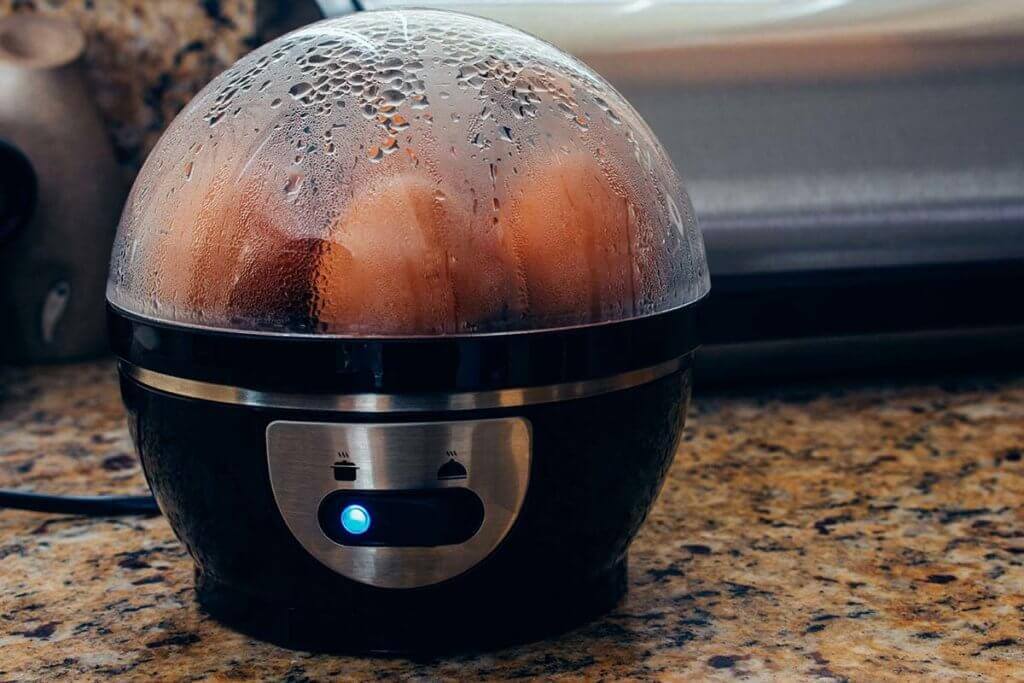
Models with hardness regulation
If the egg boiler has a hardness control, you can select the desired consistency or the cooking time yourself using a rotary switch. In addition, the water does not necessarily evaporate completely in these appliances: Instead, the desired consistency is made possible either after the cooking time has elapsed or by reaching a target temperature.
Pro points
- Easy to use
Drawbacks
- Longer cooking time
- Water remains in the appliance
Models with hardness level selection via the water quantity
With the traditional and widespread type of appliance without hardness control, the eggs are cooked when the water has evaporated completely. You therefore determine the degree of hardness by the amount of water.
How much water is needed depends, among other things, on the number of eggs you want to prepare. It may sound illogical at first, but if you only want to cook one egg in such an egg cooker, you will need more water than for cooking two or more eggs. This is due to the different size of the condensation surface.
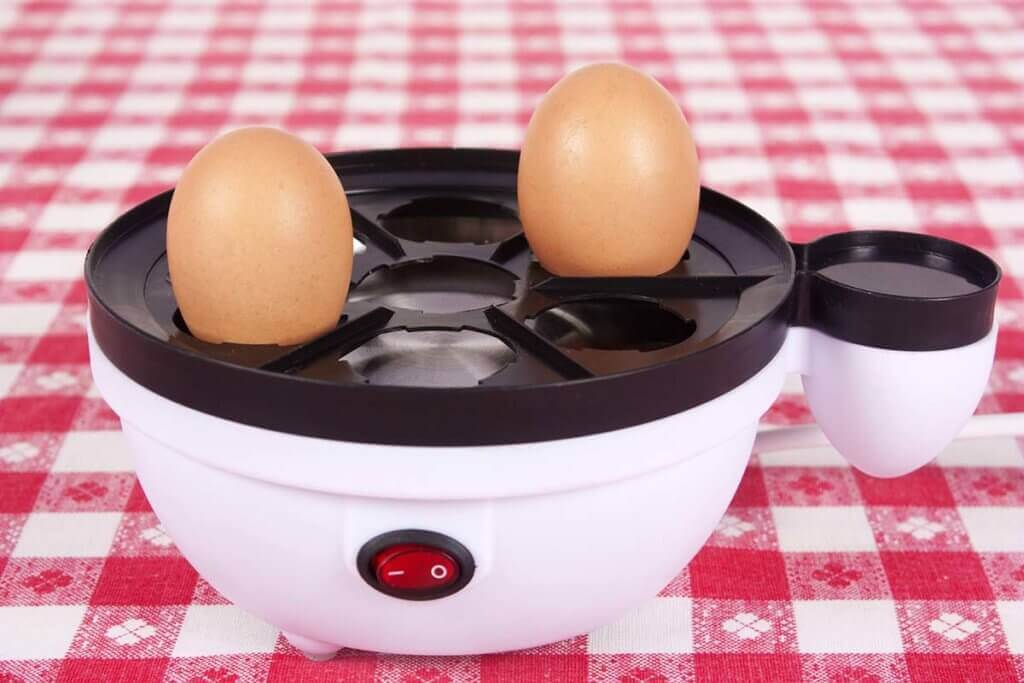
Many eggs in the cooking chamber
If you load the egg cooker with several hen’s eggs, the total surface area of the eggs is greater. The initially cold shell causes water to condense. With several eggs, more water condenses compared to just one egg. Part of the liquid evaporates, the rest returns to the heating surface below by dripping. This means that less water is needed than with a smaller number of eggs.
Few eggs in the cooking chamber
If, on the other hand, there are fewer eggs in the cooking chamber, there is more space available for the steam and, because of the smaller surface area of the egg, less water condenses overall. Therefore, a larger amount of water is required to cook one or fewer eggs.
Determining the right amount of water
Filling is easy in most cases: A scale on the measuring cup allows you to determine the exact amount of water needed, depending on the number of eggs and the desired consistency.
As soon as the water has evaporated completely, the heating plate heats up to 100 degrees Celsius. At this point, many models emit a beep to signal that the cooking process is finished and the eggs now have the desired consistency; they then switch off.
Pro points
- Shorter cooking time
- Less water consumption
Drawbacks
- Measuring the amount of water required
What you should look for when buying
When deciding on an egg boiler, there are a number of other important criteria that can play a role in the choice of model in addition to the mode of operation described, such as the number of boilable eggs, additional functions and the expected purchase price.
Quantity of boilable eggs
Probably the most important question when choosing an egg cooker is how many eggs it can cook. If you live alone, a model for one or two hen’s eggs is usually sufficient. This way you can prepare a delicious breakfast for yourself and potentially also for a guest. For a family, the egg cooker should have more space. We recommend appliances that can cook at least as many eggs as there are people in the household.
You may want to pre-cook a larger number now and then, for example for a picnic or for a longer car journey. In this case, you should choose a model for eight or even more eggs. Preparing a larger quantity is particularly energy-saving.
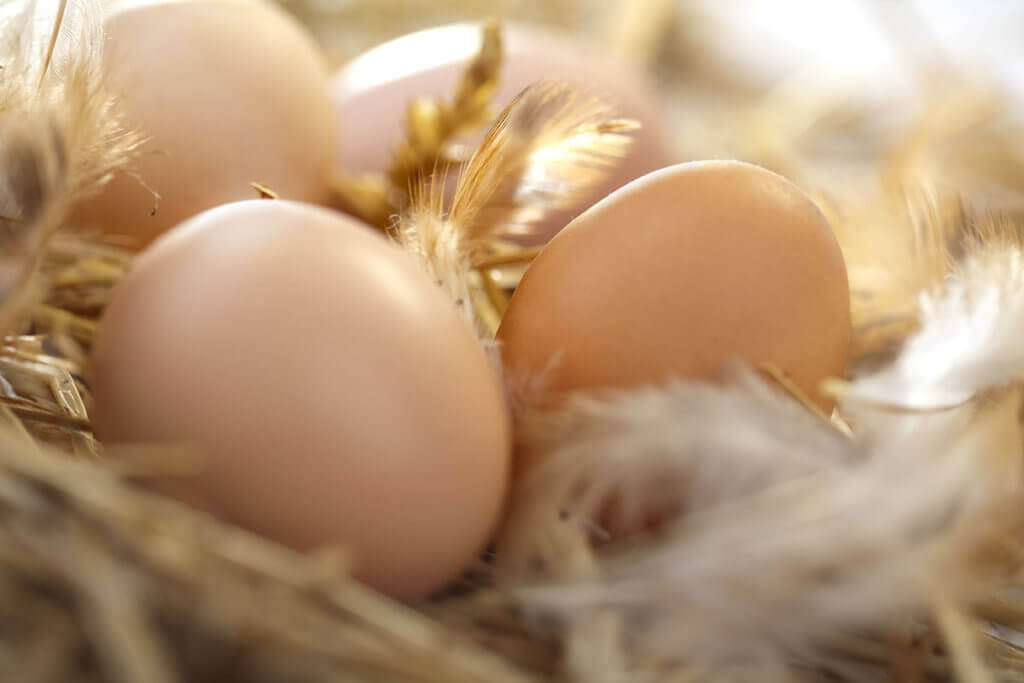
Power and preparation time
The power, expressed in watts, has a direct influence on the preparation time. In general, it is noticeable that the models that have a hardness control have a somewhat higher power, usually around 400 watts. In contrast, models where you regulate the degree of hardness via the amount of water use less power, in the range of 250 to 400 watts. In a test conducted by ETM Testmagazin in 2019, we found that the models with hardness regulation via the water quantity prepare the eggs somewhat faster than the models with hardness selection via a rotary switch. However, if the power consumption is permanently increased, the power consumption also increases.
Continuous cooking level
If you want to cook eggs to different degrees of hardness, you should choose a model with a continuous cooking stage. With this function, you can remove the eggs after a desired time and continue cooking the rest.
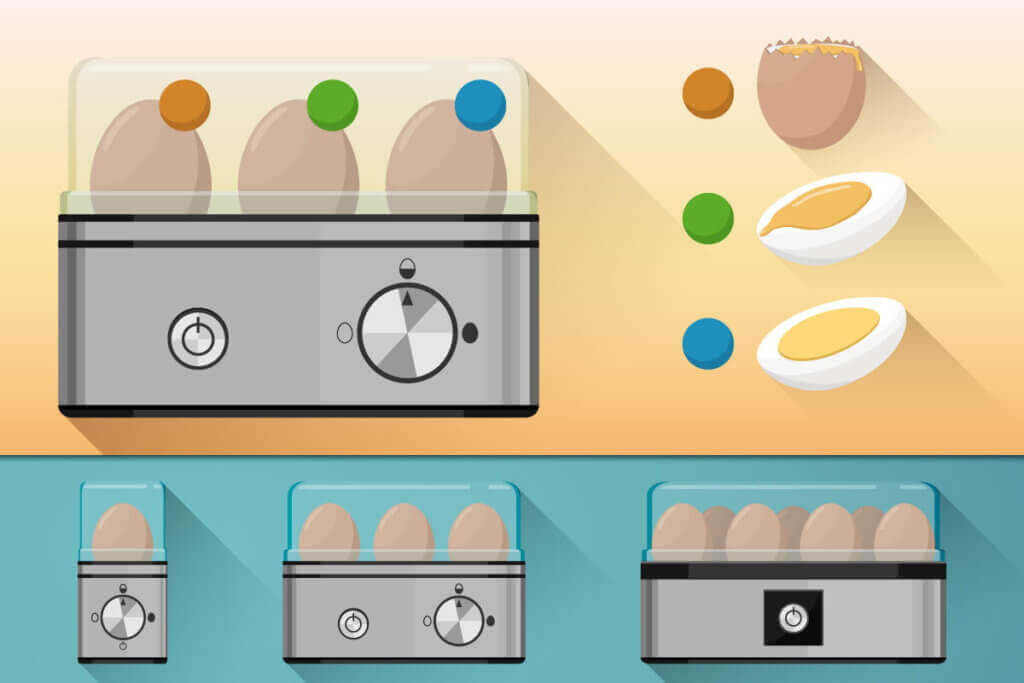
Weight and size
The weight plays a very subordinate role when choosing an egg boiler: the range is between 500 and 1,200 grams. However, you will not have to transport the egg boiler very often. Of greater interest are the dimensions. After all, the design determines how conveniently you can store the appliance in or on the kitchen cupboard. It is therefore advisable to choose a design that is as compact as possible. When buying, also make sure that the appliance cannot prepare more eggs than you need in normal use: The fewer places there are, the more compact the appliance usually is.
Accessories
In addition to common accessories such as egg piercers or measuring cups, some models also come with accessories such as omelette or poaching attachments. It is also often possible to cook rice and vegetables such as cauliflower or broccoli until al dente.
Some egg cookers have a keep-warm mode to protect the breakfast egg from cooling down until it is eaten. However, it is advisable to enjoy the eggs immediately after they have finished cooking, as it cannot be ruled out that they will otherwise continue to cook and no longer meet your personal preference in terms of consistency.
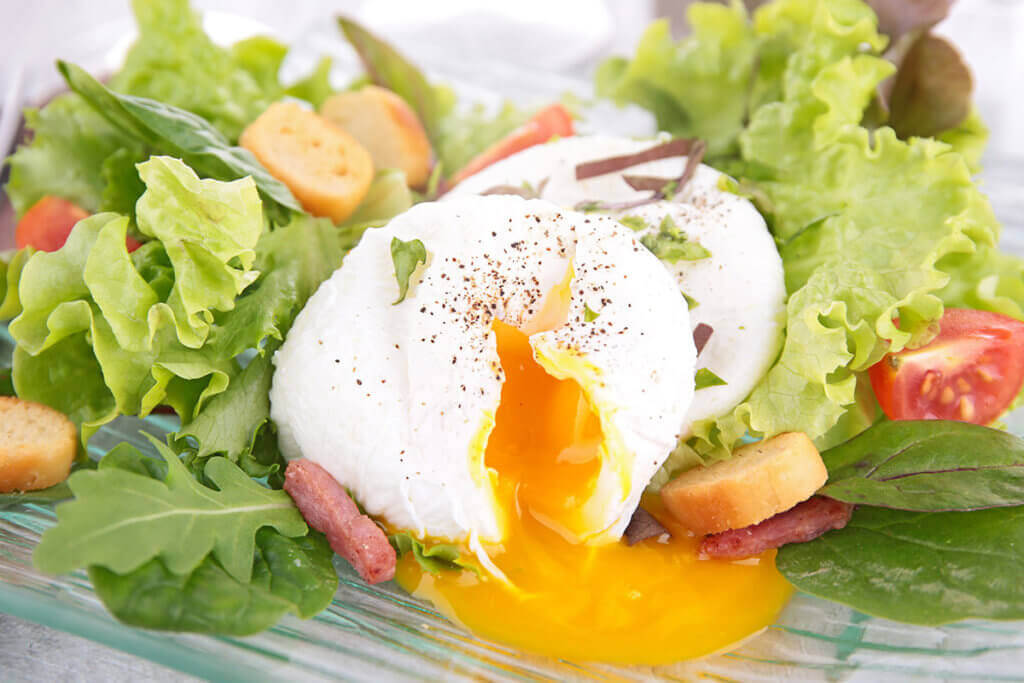
Operation
Ease of use is also a decisive purchase criterion. Lengthy guesswork about the various functions should be superfluous, as should looking things up in the operating instructions. A simple appliance like an egg boiler should be intuitive to operate – then it will be used regularly.
Price
Depending on the material, workmanship and additional functions, the price ranges from about 15 to 50 euros. Since both electricity and energy are saved compared to a water bath in a saucepan, the purchase of a 20-euro model pays for itself after about two years.
Avoid limescale marks
If you rinse your egg boiler with a little vinegar after each use, no limescale residue will remain.
Frequently asked questions and cleaning tips
After purchasing, many users are unsure whether they should pierce the egg to prevent the shell from cracking. In addition to answering this question, we provide tips on how to clean them.
Should you pierce the eggs to prevent bursting?
There is a persistent rumour that eggs should be pierced with an “egg pricker” or “egg picker” to prevent bursting. From a scientific point of view, however, there is no point in pretreating eggs in this way: During cooking, the air expands as the water vapour pressure increases. Usually, the egg shell is robust enough to withstand this pressure. About ten percent of eggs burst during cooking – regardless of whether you pre-treat it by piercing it. WDR found this out in a test in 2011. The remaining eggs remain intact.
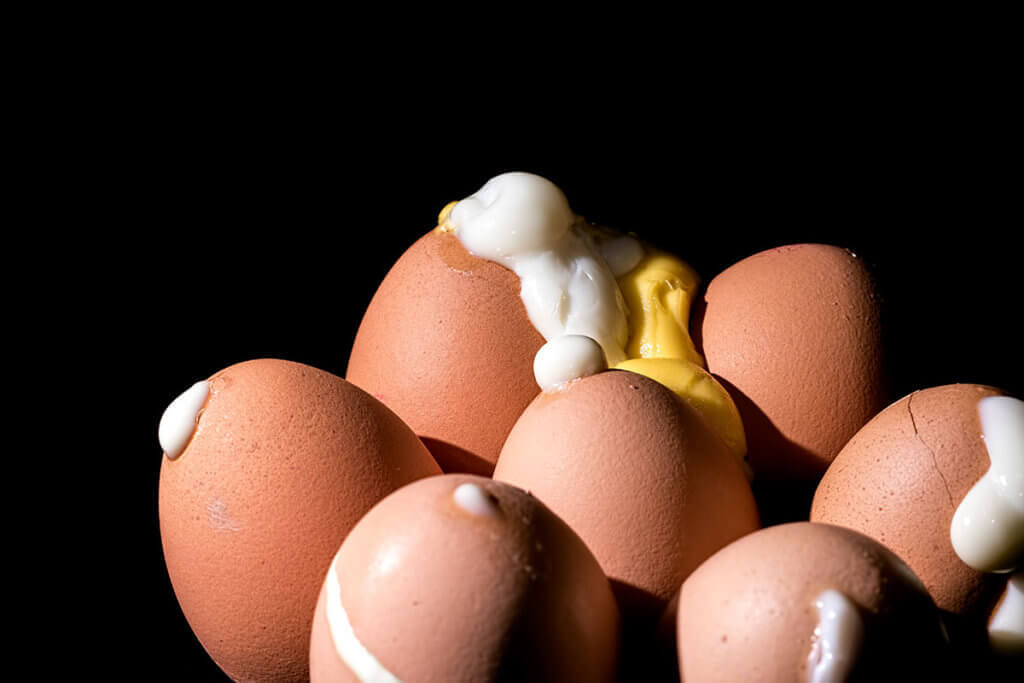
How should I clean my egg boiler?
As always, the first thing to do when cleaning electrical appliances is to unplug the appliance before you start cleaning it with water and never immerse the egg boiler in water. Instead, use a damp cloth and a small amount of vinegar to remove limescale and burnt egg white residues. If an egg does crack, a little vinegar is also sufficient for cleaning. If the hot plate is more heavily soiled, it is advisable to let a mixture of vinegar and baking soda soak in for a few minutes, then remove the mixture with a cloth and wipe the plate with water afterwards.

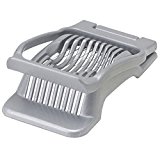
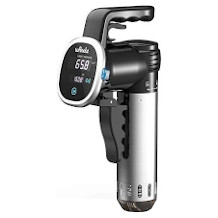
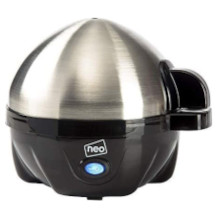
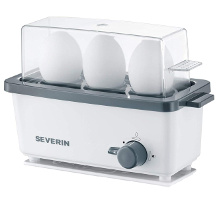
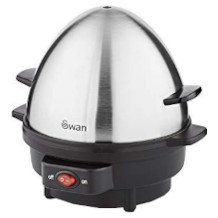

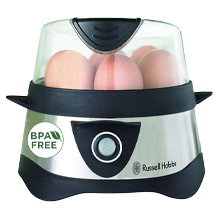
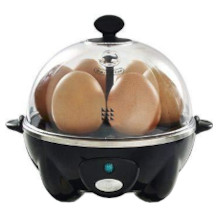
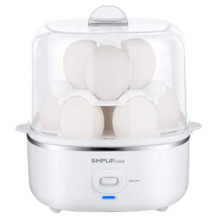
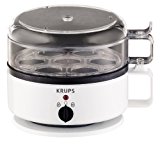
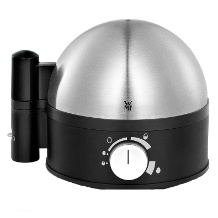
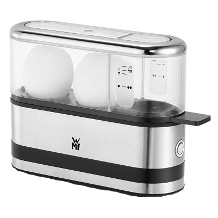
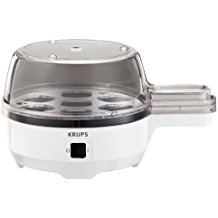
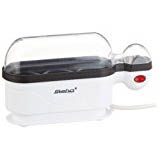
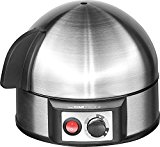
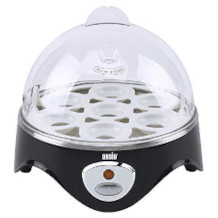

 2,053 reviews
2,053 reviews

